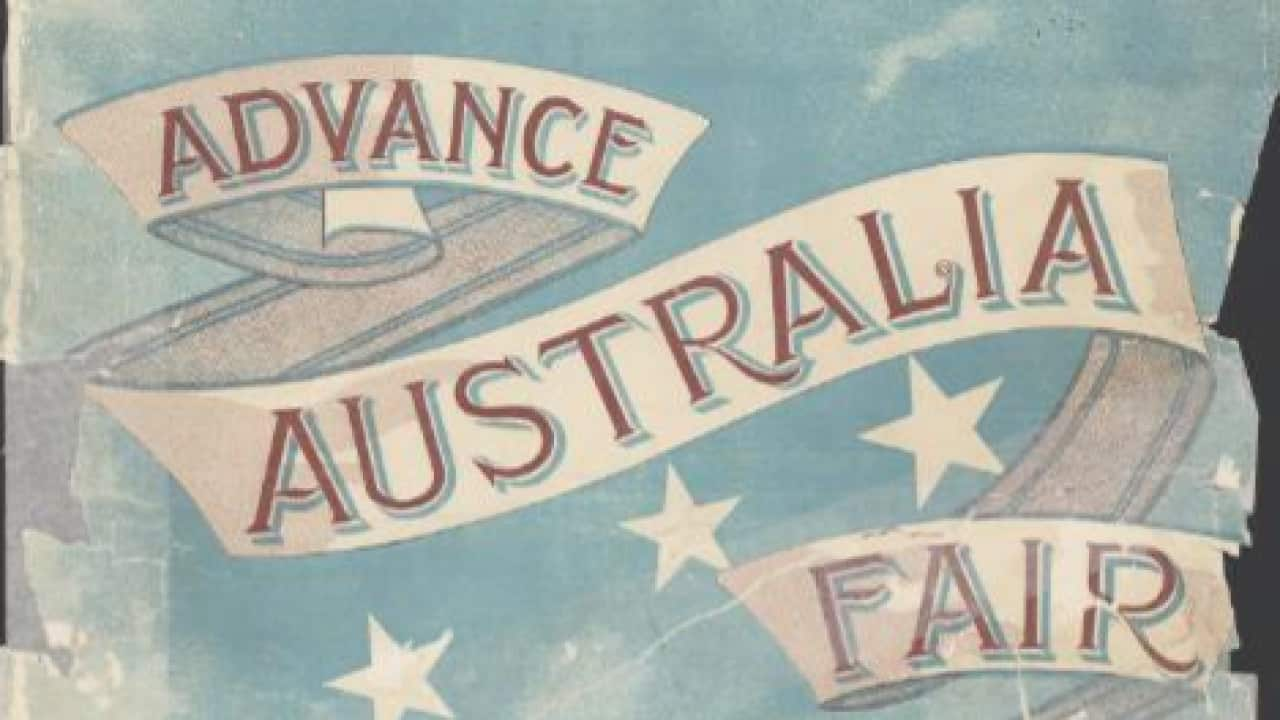There are several things patently wrong with Australia’s national anthem.
Firstly setting aside the mistaken presumption that it is compulsory to stand and sing it, the lyric “we are young and free” alone wilfully rejects, minimises and attempts to erase millennia of First Nations culture and deep connection to place. Arguably more troubling is that it also conveniently ignores the ongoing oppression of this continent’s first peoples.
“we are young and free” alone wilfully rejects, minimises and attempts to erase millennia of First Nations culture and deep connection to place.
On Tuesday, rugby league player during the preliminary ceremonies of next week’s State of Origin game at Lang Park in Brisbane. We should all be supporting him, particularly in light of this week being National Reconciliation Week.
For many First Nations peoples the anthem is offensive. The appropriate response for the broader nation is to improve its understanding of why and how that continues to be the case, not label Walker’s stand “divisive”.
Predictably, morning television whipped the sentiment of fragile white viewers into a froth, describing Walker’s quiet refusal as an Australian Anthem Row. In a press conference promoting the series opener, the player himself insisted his stand was just his opinion and he did not intend “to spark a wider movement”.
At the same presser, Walker’s New South Wales coach Brad Fittler said he respected the decision of his star playmaker, but added he would be singing the anthem. Despite this entirely fair and reasonable compromise, sections of outraged fans promptly took to social media to call on the coach to immediately remove Walker from the team.
Walker was one of several Indigenous players who didn’t sing the anthem at the NRL All-Stars game in Melbourne in February. In the wake of that quiet refusal, Walker said: “It just brings back so many memories from what’s happened [in Australia’s past] … I think it’s something that everyone as a group, and everyone in Australia, needs to work something out.”The South Sydney star also said the national anthem didn’t “represent me or my family”.
The South Sydney star also said the national anthem didn’t “represent me or my family”.
Walker’s statements were supported by the NRL great and celebrated Indigenous player Johnathon Thurston, while the NSW winger, Josh Addo-Carr, followed suit and will remain silent with Walker on Wednesday. Other former and current players and the game’s administrators will undoubtedly offer their own support for the stand in the coming days.
Each one should be applauded and recognised as genuine ambassadors for Reconciliation in this nation.
Detractors somehow dismiss Walker’s refusal as a cheap facsimile of the . Kaepernick – a former San Francisco 49ers quarterback – famously took a knee rather than sing the Star-Spangled Banner. Media entwined his activism into the Black Lives Matter peace movement that swept across the US following the high-profile police killings of black men in numerous states across that country. That was an attempt to minimise the resonant truth of Kaepernick’s message, which – like the heart of the BLM movement – was a desperate appeal against persistent systemic racism in the US.
Walker’s refusal resonates as profoundly for politically astute First Nations peoples in Australia and, incidentally, is a particular form of political protest in this country by blackfellas that extends back much further than 2016.
NRL Immortal-in-waiting Thurston said the issue of refusing to sing Advance Australia Fair before the 2019 All-Stars game kick-off was not properly discussed after the game: “It was like it was just brushed over,” he told the Sydney Morning Herald.
However, the topic did get a run, it’s just that the timing wasn’t favourable in terms of political mileage. The All-Stars game was held on 15 February, the day after the 2019 Closing the Gap report was tabled, and to be fair, in anybody’s estimation, there just wasn’t that much to be singing about. Australians all let us rejoice? Yeah, nah.
Australians all let us rejoice? Yeah, nah.
So, rather than have a faux-patriotic argument rapidly deflated before it got bouncy, the two industries that stand to benefit most regarding a controversy over what is and isn’t acceptable Australian sentiment simply shuffled on.
Elsewhere, a fair number of blackfellas and whitefellas were talking at length about how a refusal to sing the praises of Australia corresponded rather neatly with the deficits disclosed in the 11th Closing the Gap report. A summary of deficits that in following days prompted Pat Turner AM, the CEO of the National Aboriginal Community Controlled Health Organisation, to write, “The quality of life among our communities is simply not equal to that of our non-Indigenous Australian counterparts.”
Then consider the crisis of Aboriginal youth suicide: ; the staggering levels of overrepresentation of our men, women and children in prison; ongoing affects of intergenerational trauma stemming from forced removals from our cultures and families in terms of our health and wellbeing; or the struggles for compensation for these Stolen Generations survivors, or compensation for wage theft and labour exploitation. There’s not a tremendous lot to inspire joyful strains, truth be told.
Cody Walker’s right to refuse to sing a so-called anthem should be the first acknowledgement of truth...
This week, for National Reconciliation Week, the theme is “grounded in truth”. The aim is to encourage large sections of the Australian public to reconcile itself with uncomfortable truths about the Australian nation’s relationship with the continent’s First Nations peoples. Cody Walker’s right to refuse to sing a so-called anthem should be the first acknowledgement of truth along that path.
Related Reading

10 things you should know about Advance Australia Fair
- Jack Latimore is a senior editor for NITV News Online and a Guardian columnist.











